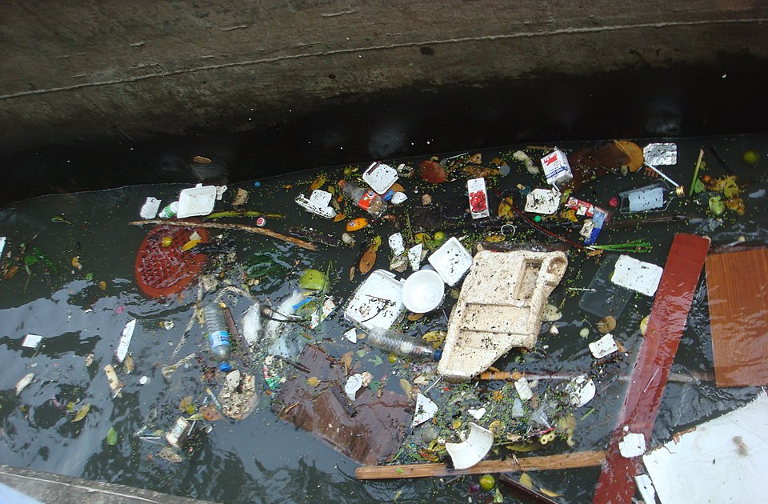I bought a tent last week. It’s a nice tent… nothing too special. A two-person backpacker. A Coleman. Solid, American brand. Got it second-hand, at a garage sale, for 40 whole dollars. Far too good a deal to pass up, I conceded, after a bit of waffling back and forth. Naturally, we very often debate goods and bads, pros and cons, in our decision-making, our relationships, and our politics. In the case of my opportunistic thriftiness, there was a good to that good I received. But there was also a bad to that good. For as I transferred those ol’ smackeroos, those two Jackson’s, those four Hamilton’s, those 40 individual contracts guaranteeing future consumption over to their eager receiver, I was playing a part, a necessary role, in a system much, much bigger than two dudes combing through some gear in a backyard.
We live in a society of never-ending growth. We add goods, and more goods, and MORE GOODS to this society, and think that that will yield… well, a good. But two wrongs don’t make a right, and two bads don’t make a good. Actually, in all fairness to the ever-chugging, sooty engine of industry, they do make a good. They make many goods. Our free market, capitalist, GDP-obsessed economy will churn a good out of my tent, and my stakes, and my rain fly, but that sure is not intrinsically a good to the wider world… goodness gracious, I think you get what I’m saying.
We are all consumers. This is a truth, quite simply, from the tiniest flea to the greatest blue whale. The most basic fundamentals of ecology teach us this. In due time, the circling hawk consumes the skittering deer mouse consumes the lush prairie grass consumes the natural, life-building elements gleaned from all around it. Therefore, through perhaps the best series of fortune, sunlight becomes grass, who takes the form of mouse, who temporarily disguises himself as hawk, who, before long, meets his fiercely proud end and returns to the good land as an old friend– temporarily felled, but never ended, as all the future life imbued with his past can attest to.
Case in point, ecological harmony. Consumption is not inherently negative, of course, but doing so recklessly, greedily, and outside the naturally regulating limits of any living system is.
And yes, we may see a level of savagery to such consumption in the “wild”. But it is really a respect. An ancient, deep, subconscious reliance for mutual survival within a chaotic world that somehow our present human civilization has sidestepped and risen above. Copiously, ludicrously, we deface our lands, displace our brother hawks and sister mice, and destroy our links to the ecological communities that fabric our very being. Life is consumption, and, I suppose, consumption is life. But we have strayed so far from whence we came.
Rather than operating as a single cog within an infinitely interconnected web of ecosystems, our species has within about the last 10,000 years mechanized, industrialized, and brutalized our way to the pinnacle of control over the world and its inhabitants. How else can one explain species extinction happening around 1000 times faster today than ever in recorded history? How else can one reconcile over 50% of the world’s wild vertebrate population being lost in the past 40 years, and about 80% of global fisheries being overexploited? How else can one come to terms with humans and our domesticated pets and livestock accounting for approximately 98% of all terrestrial vertebrate biomass today? We operate as nothing less than a super-amoeba, an organism of 7.6 billion absorbing, overtaking, and destroying everything that stands in the way of its growth and progression. A Manifest Destiny of ever-manifesting depravity.
Unsuccessful in the hunt, a grizzly bear squatting hungrily in his favorite river does not hold contempt nor spite for the salmon who bested him. He understands that wild nature is to be controlled by no tooth or paw. Human beings were once so knowing too. Nomadic, hunter-gatherer-type peoples had no aspirations of exploitation, for to strip the planet, their home, of its dignity and life forms was to jeopardize the survivability of themselves as well.
But now, the greedy, fossil fuel-driven hand of progress prods us ever onwards down our path of destruction, production, consumption, and waste. In a way, it’s really no wonder the common man misunderstands our shared resource limits, when our current, economically-minded collective culture doesn’t whisper, but rather shouts, in our ears to consume, consume, consume; spend, spend, spend; and waste, waste, waste. All, it may go without saying, increasingly beyond the carrying capacity and sustainability of what our planet has so graciously loaned us, like a book, for careful use and return.
Quite frankly, it is beyond astounding that critically straining the only home we will ever know through over-consumption has not only been normalized, but expected, of us all.
Phone out of style? Upgrade it. Clothes not dope enough? Buy more. House not roomy enough, lifestyle not luxe enough, life not spent spending enough? Break that piggy bank, whip out that credit card… you know what to do.
How can we possibly break this cycle of ignorant irresponsibility? When over ⅔ of the world’s population, still in the various levels of pre-industrial, emissions-heavy development, aspires simply to have access to a washing machine, or basic sanitary services, or running water, such an American-ized standard of careless luxury and gluttony not even a pipe dream, how do we react, and where do we go? Do the Over-consumers of the First World attempt to halt the development of the Second World or Third World? Because if everyone reached this level of consumption; if everyone had overflowing mega-markets fed by aggressive, monoculturalistic agriculture; if everyone could drive gas-guzzlers, and live in suburban paradise; if everyone could have their cake and shove it down their throat too; if everyone could live rich, fed, and ignorant, that smokescreen obscuring reality more completely than those ridiculous Ray-Ban’s we peruse in SkyMall, well, now that just wouldn’t be sustainable for the long run, would it?
We are a culture of Takers doing what Takers do best, plying any nagging inhibitions about our standing in this imbalanced, stress-ridden modern world with drugs, alcohol, sex, wealth, mindless entertainment, Bible verses… Stringing up a cultural narrative of, “Think Less, Buy More” through the master puppeteering of industry magnates, and advertising execs, warring politics, and growth economists. Purposely forgetting that, we too, are but a single species governed by timeless ecological laws that don’t give a flying you-know-what about what humans and their upstart constitutions, religious texts, and economic bottom lines may say to the contrary.
The time for business-as-usual is over. The time to reckon with reality is now.
For we are peaking. Peaking in everything. Our oil supply and accessibility. Our carefree zigzagging around the planet in planes, trains, and automobiles. Our $0.99 cheeseburgers at McDonald’s. Yes, even our economic growth. The biophysical costs of our modern, societal “gains” tolled on our Mother Earth do not waver based on the monetary prices we assign to them. It’s as naïve as citing ancient, outdated religious texts written by humans as carrying valid, indisputable answers to our present, global problems. Heading down this GDP-illuminated road, socio-ecological issues will continue to manifest, regardless of what our all-powerful pieces of paper, consumerist leaders and imaginary bytes of information say about them.
So, what do I propose? Instead of GDP, instead of a never-ending growth narrative, how about something like GDR? Gross Domestic Renewal. A restructuring of our society, a reusing of our products, a saving of our resources. A propensity towards producing only what we actually need, and accomplishing that through focused, sustainable means. A nation’s success being based not on how much it can build up, make up, and round up, but rather how much it can pare down, slim down, and hold down.
It need not, and should not, be tallied by production, nor consumption. The only good we should worry about is the goodness of our and other species existence, and continued existence.
And on the personal level? Resist the urges to exist, and spend money and time, in the material world. Look into, as much as possible, where and how products of any kind are made, and support those businesses with similar values to yours. Practice resilience of mind, body, and spirit– through metacognition, fasting against impulsive decisions, or simple diligence to any soul-satisfying activity– which will not only help to suppress über-consumptive urges, but leave you more satisfied, fulfilled, and content with what you already have, not want to have.
And what good will this new narrative do, our consumption-blinded leaders will ask, when our current short-sighted, self-defeating rat race of producing and polluting is replaced by an ecologically-sapient, intergenerational foresight?
Well, the ultimate, for lack of a better word… good. A restoring of Earth’s ecosystems, a replenishing of its beauteous resources… and, finally, a renewal of our precious, tenuous lease on this planet.
Teaser photo credit: By Twentyfour Students from Bangkok, Thailand – Poluted water_Aayush, CC BY-SA 2.0, https://commons.wikimedia.org/w/index.php?curid=83288973






